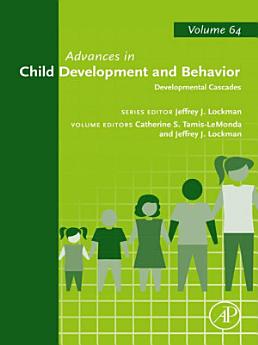Developmental Cascades
About this ebook
About the author
Catherine S. Tamis-Lemonda is Professor of Developmental Psychology at New York University’s Steinhardt School of Culture, Education, and Human Development, and Director of the Play and Language Lab. She applies multiple methods to the study of infants’ and toddlers’ developing communication, language, play, and motor skills, with a focus on developmental cascades across domains, between infants and caregivers, and over child age. Tamis-LeMonda conducts her research across cultural communities in the United States and internationally, with the goal of documenting both general principles of learning and child experiences that are best characterized by cultural specificity. Her research has been funded by the National Institute of Child Health and Development, National Institute of Mental Health, the National Science Foundation, Administration for Children and Families, the LEGO Foundation, Ford Foundation, and the Robinhood Foundation. She has over 200 publications in peer-reviewed journals and books, and is author of the 2022 textbook Child Development: Context, Culture, and Cascades (Oxford University Press). She has co-edited the volumes Child Psychology: A Handbook of Contemporary Issues (editions 1, 2, and 3), Handbook of Father Involvement: Multidisciplinary Perspectives (editions 1 and 2), and The Development of Social Cognition and Communication. She has held positions on many national and international boards, committees, societies, and journals, including serving on the Governing Council for the Society for Research on Child Development (SRCD), being President of the International Congress of Infant Studies (ICIS), and serving as Associate Editor of Infancy and Journal of Experimental Psychology: General.
Professor Jeffrey J. Lockman got his Ph.D at the University of Minnesota. His research interests center on perception-action and cognitive development. In his recent work, he has been studying the development of tool use in children and how it might be related to the object manipulation skills of infants. Additionally, he has been conducting work on spatial cognition in children, focusing on how children code the location of objects and object features.










